The European Commission moved last week to delay the implementation of the EU deforestation regulation, which could see cattle farmers faced with more red tape, by one year.
The proposed delay to December 2025 was tabled as confusion mounts over what requirements lie in store for farmers and processors once the new rules take effect.
The regulation was agreed at EU level in 2023, and aims to prevent products being placed on the EU market or exported from EU countries which contributed towards deforestation or degradation of forests.
The commodities it covers are cattle, cocoa, coffee, palm oil, rubber, soy and wood, as well as some of the products derived from these commodities, such as leather in the case of cattle.
Once the rules take effect, these products cannot be sold in or exported from the EU if they were produced on land that was deforested after 31 December 2020, but they can originate from lands deforested before this date.
To enforce the rules, due diligence statements will need to accompany any of the products covered by the regulation when they are being placed on markets.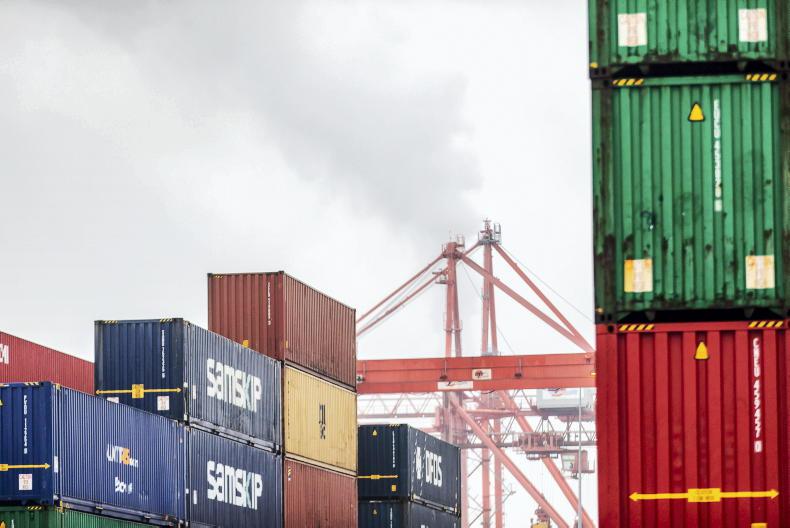
Countries exporting to the EU will have to comply with the rules targeting deforestation. \ Philip Doyle
While concrete details remain to be fleshed out by the Commission, it appears that Irish farmers will have to submit geolocation data to a centralised database before they sell cattle to another farmer or to a factory to comply.
This could be done by submitting geotagged photos, but the system has yet to be established and tested.
The Department of Agriculture has said that as no soy is grown in Ireland, feed merchants and farmers can rely on the due diligence statements generated by those exporting the soy into the EU.
Further information, including the farmer’s name, address and declarations around cattle feed will also need to be submitted during the new process to generate the due diligence statement needed to make a sale.
Making a submission will generate a reference number on a centralised EU database, which is to be used along the supply chain down to the end-sale of goods.
Penalties for non-compliance with the rules could see fines, the confiscation of products or income, and exclusion from sources of public funding.
MEPs and member states will have to sanction the Commission’s plans over the coming months if the regulation’s end of December crunch date is to be pushed out to 2025.
The Commission insists that the extension “in no way puts into question the objectives or the substance of the law” as it was agreed with MEPs and member states.
Copa, the umbrella organisation for EU farming groups, was among a growing number of representative bodies to call for a postponement of the new rules.
Copa stated that more time is needed for the EU’s farmers to receive clarity on what the law will demand from them, and to find out how the due diligence procedures will work in practice.
The introduction of the regulation was also criticised by the Brazilian government earlier this year, as it claimed that the new procedures violate international trade rules and will increase costs of exporting goods to the EU.
What will farmers have to do differently?
Much of the detail on what this regulation will require of farmers has yet to be outlined by the Commission and the Department.
However, from what is known so far, it appears that farmers selling cattle on to other farmers or to factories will be classed as operators under the regulation and have to complete a due diligence statement that the cattle were not grazed on deforested lands to make the sale.
The Department has said that farmers can nominate an “authorised representative” to submit due diligence statements on their behalf, but responsibility will stay with the farmers.
This could allow farm advisers to submit due diligence information on behalf of farmer clients who do not have access to the smartphone technology that will likely be used to submit location data.
Retailers are classed as traders and can rely on due diligence previously carried out in the supply chain, but still remain liable for breaches in the regulation.
The regulation sets out codes for different categories of cattle products. Some examples are live cattle, with a differentiation between pedigree and commercial animals, as well as frozen beef and fresh/chilled beef.
Farmers selling cattle will have to submit a due diligence statement with data on every farm the cattle were kept since birth under the planned rules. / Ramona Farrelly
For cattle, the geolocation requirement will require information to be submitted on all locations associated with birth, rearing, finishing and any other premises that the cattle were kept on a temporary or permanent basis.
The location is to be the farmyard of the holding in each case.
Due diligence
All of these co-ordinates will feed into the due diligence statement needed to place the cattle and the beef from them on EU markets or to export these products from the EU.
The Department has established an internal working group to “examine if it can assist operators in terms of already existing data.”
It should be noted that beef may not have to comply with the law if cattle were born before 29 June 2023, when the law was passed, according to information issued by the Commission this week.
The competent authority designated for each member state and non-EU country – which in Ireland’s case is the Department of Agriculture – will be required to carry out checks to ensure that deforestation-free claims are true.
Satellite inspections may negate the need for on-the-ground farm inspections, but the procedures around compliance checks still need to be clarified.
The law will place different risk categories on countries or regions within the EU and outside it, with areas of lower risk to be permitted to use slightly simplified due diligence procedures.
While the Department of Agriculture expects that Ireland will fall into the lowest risk category, confirmation is needed from the Commission, and a default risk category will be applied if this confirmation does not come before the regulation enters force.
The Commission has not yet assigned risk to any regions or countries, despite the law initially being due to come into effect in just three months’ time.
However, even low-risk areas will need to supply geolocation data in due diligence statements.
A higher-risk category may also be assigned to operators who have previously been linked with illegality.
It has yet to be confirmed whether a farmer selling cattle will need to submit due diligence statements for every load of cattle sold, or if a once-yearly submission will allow them to comply fully with the regulation.
The Commission has clarified that farmers should be able to duplicate due diligence statements and not have to re-submit all required information every time they fill in a new statement.
IFA president Francie Gorman welcomed the Commission’s plans to postpone the rules and called on policymakers to use the time to strip out the requirements the regulation’s current form will place on the EU’s farmers.
“We have consistently raised the substantial concerns we had with the potential impact this regulation could have on many of our members,” Gorman told the Irish Farmers Journal.
“This pause would give our lawmakers the time to fix the regulation and ensure it protects EU agri-food markets from imports from deforested regions, while not directly impacting Irish and European farmers.”
Department of Agriculture Q&A
The Department of Agriculture has answered a number of farmer questions on the regulation.
If the EU deforestation regulation does not apply to cattle born before 30 December 2024, does this mean that the regulations also do not apply to meat from these cattle?
Yes. The entry into application of the regulation is foreseen 18 months after its entry into force; i.e. on 30 December 2024. This means that operators and traders do not have to comply with the requirements for products placed on the EU market before that date.
Are you planning on using the cattle traceability system to hold geolocation data for cattle or is the expectation that farmers will need to find and upload this information for each sale?
The Department of Agriculture has established an internal working group to examine if it can assist operators in terms of already existing data. Geolocation data, i.e. X/Y co-ordinates, can be obtained using smartphone devices or other electronic equipment.
Are you saying farmers must complete a due diligence statement for each lot killed or sold farm-to-farm?
The Department has requested Commission clarification on this point. The Commission information system does not currently have the functionality to store frequently used data so that it can be auto-filled rather than entered afresh for each new statement. Nevertheless, it is expected that it will be possible to duplicate due diligence statements (DDS) that have already been submitted, thereby reducing the time needed to complete a new statement.
Will farmers be expected to do a DDS?
A farmer who, in the course of a commercial activity, places relevant products on the market or exports them is an operator. Under Article 4(2) “operators shall not place relevant products on the market or export them without prior submission of a due diligence statement”.
Under Article 2(29) of the regulation, the geolocation requirement in the statement refers to all establishments associated with raising the cattle, encompassing the birthplace, farms where they were kept – in case of open-air farming, any environment or place where livestock are kept, on a temporary or permanent basis etc.
How will the regulation affect soy? Will a due diligence statement number follow the shipment to each farmyard and follow the animal through to food chain forms at the factory? Or will the first statement will be sufficient to prove all soy feed is deforestation-free in Ireland?
We are proposing that as soy is not grown in Ireland, all soy used in animal feed will have been imported by the relevant importers. Accordingly, any subsequent use of soy (and palm) will be covered by the due diligence statements accompanying such imports, and any trader further down the chain that uses the soy and is asked as to its provenance vis-à-vis the regulation, can rely on the original import statement. Thus, those at the top of the pyramid of soy and palm use in Ireland will cover subsequent use of those below.
The European Commission moved last week to delay the implementation of the EU deforestation regulation, which could see cattle farmers faced with more red tape, by one year.
The proposed delay to December 2025 was tabled as confusion mounts over what requirements lie in store for farmers and processors once the new rules take effect.
The regulation was agreed at EU level in 2023, and aims to prevent products being placed on the EU market or exported from EU countries which contributed towards deforestation or degradation of forests.
The commodities it covers are cattle, cocoa, coffee, palm oil, rubber, soy and wood, as well as some of the products derived from these commodities, such as leather in the case of cattle.
Once the rules take effect, these products cannot be sold in or exported from the EU if they were produced on land that was deforested after 31 December 2020, but they can originate from lands deforested before this date.
To enforce the rules, due diligence statements will need to accompany any of the products covered by the regulation when they are being placed on markets.
Countries exporting to the EU will have to comply with the rules targeting deforestation. \ Philip Doyle
While concrete details remain to be fleshed out by the Commission, it appears that Irish farmers will have to submit geolocation data to a centralised database before they sell cattle to another farmer or to a factory to comply.
This could be done by submitting geotagged photos, but the system has yet to be established and tested.
The Department of Agriculture has said that as no soy is grown in Ireland, feed merchants and farmers can rely on the due diligence statements generated by those exporting the soy into the EU.
Further information, including the farmer’s name, address and declarations around cattle feed will also need to be submitted during the new process to generate the due diligence statement needed to make a sale.
Making a submission will generate a reference number on a centralised EU database, which is to be used along the supply chain down to the end-sale of goods.
Penalties for non-compliance with the rules could see fines, the confiscation of products or income, and exclusion from sources of public funding.
MEPs and member states will have to sanction the Commission’s plans over the coming months if the regulation’s end of December crunch date is to be pushed out to 2025.
The Commission insists that the extension “in no way puts into question the objectives or the substance of the law” as it was agreed with MEPs and member states.
Copa, the umbrella organisation for EU farming groups, was among a growing number of representative bodies to call for a postponement of the new rules.
Copa stated that more time is needed for the EU’s farmers to receive clarity on what the law will demand from them, and to find out how the due diligence procedures will work in practice.
The introduction of the regulation was also criticised by the Brazilian government earlier this year, as it claimed that the new procedures violate international trade rules and will increase costs of exporting goods to the EU.
What will farmers have to do differently?
Much of the detail on what this regulation will require of farmers has yet to be outlined by the Commission and the Department.
However, from what is known so far, it appears that farmers selling cattle on to other farmers or to factories will be classed as operators under the regulation and have to complete a due diligence statement that the cattle were not grazed on deforested lands to make the sale.
The Department has said that farmers can nominate an “authorised representative” to submit due diligence statements on their behalf, but responsibility will stay with the farmers.
This could allow farm advisers to submit due diligence information on behalf of farmer clients who do not have access to the smartphone technology that will likely be used to submit location data.
Retailers are classed as traders and can rely on due diligence previously carried out in the supply chain, but still remain liable for breaches in the regulation.
The regulation sets out codes for different categories of cattle products. Some examples are live cattle, with a differentiation between pedigree and commercial animals, as well as frozen beef and fresh/chilled beef.
Farmers selling cattle will have to submit a due diligence statement with data on every farm the cattle were kept since birth under the planned rules. / Ramona Farrelly
For cattle, the geolocation requirement will require information to be submitted on all locations associated with birth, rearing, finishing and any other premises that the cattle were kept on a temporary or permanent basis.
The location is to be the farmyard of the holding in each case.
Due diligence
All of these co-ordinates will feed into the due diligence statement needed to place the cattle and the beef from them on EU markets or to export these products from the EU.
The Department has established an internal working group to “examine if it can assist operators in terms of already existing data.”
It should be noted that beef may not have to comply with the law if cattle were born before 29 June 2023, when the law was passed, according to information issued by the Commission this week.
The competent authority designated for each member state and non-EU country – which in Ireland’s case is the Department of Agriculture – will be required to carry out checks to ensure that deforestation-free claims are true.
Satellite inspections may negate the need for on-the-ground farm inspections, but the procedures around compliance checks still need to be clarified.
The law will place different risk categories on countries or regions within the EU and outside it, with areas of lower risk to be permitted to use slightly simplified due diligence procedures.
While the Department of Agriculture expects that Ireland will fall into the lowest risk category, confirmation is needed from the Commission, and a default risk category will be applied if this confirmation does not come before the regulation enters force.
The Commission has not yet assigned risk to any regions or countries, despite the law initially being due to come into effect in just three months’ time.
However, even low-risk areas will need to supply geolocation data in due diligence statements.
A higher-risk category may also be assigned to operators who have previously been linked with illegality.
It has yet to be confirmed whether a farmer selling cattle will need to submit due diligence statements for every load of cattle sold, or if a once-yearly submission will allow them to comply fully with the regulation.
The Commission has clarified that farmers should be able to duplicate due diligence statements and not have to re-submit all required information every time they fill in a new statement.
IFA president Francie Gorman welcomed the Commission’s plans to postpone the rules and called on policymakers to use the time to strip out the requirements the regulation’s current form will place on the EU’s farmers.
“We have consistently raised the substantial concerns we had with the potential impact this regulation could have on many of our members,” Gorman told the Irish Farmers Journal.
“This pause would give our lawmakers the time to fix the regulation and ensure it protects EU agri-food markets from imports from deforested regions, while not directly impacting Irish and European farmers.”
Department of Agriculture Q&A
The Department of Agriculture has answered a number of farmer questions on the regulation.
If the EU deforestation regulation does not apply to cattle born before 30 December 2024, does this mean that the regulations also do not apply to meat from these cattle?
Yes. The entry into application of the regulation is foreseen 18 months after its entry into force; i.e. on 30 December 2024. This means that operators and traders do not have to comply with the requirements for products placed on the EU market before that date.
Are you planning on using the cattle traceability system to hold geolocation data for cattle or is the expectation that farmers will need to find and upload this information for each sale?
The Department of Agriculture has established an internal working group to examine if it can assist operators in terms of already existing data. Geolocation data, i.e. X/Y co-ordinates, can be obtained using smartphone devices or other electronic equipment.
Are you saying farmers must complete a due diligence statement for each lot killed or sold farm-to-farm?
The Department has requested Commission clarification on this point. The Commission information system does not currently have the functionality to store frequently used data so that it can be auto-filled rather than entered afresh for each new statement. Nevertheless, it is expected that it will be possible to duplicate due diligence statements (DDS) that have already been submitted, thereby reducing the time needed to complete a new statement.
Will farmers be expected to do a DDS?
A farmer who, in the course of a commercial activity, places relevant products on the market or exports them is an operator. Under Article 4(2) “operators shall not place relevant products on the market or export them without prior submission of a due diligence statement”.
Under Article 2(29) of the regulation, the geolocation requirement in the statement refers to all establishments associated with raising the cattle, encompassing the birthplace, farms where they were kept – in case of open-air farming, any environment or place where livestock are kept, on a temporary or permanent basis etc.
How will the regulation affect soy? Will a due diligence statement number follow the shipment to each farmyard and follow the animal through to food chain forms at the factory? Or will the first statement will be sufficient to prove all soy feed is deforestation-free in Ireland?
We are proposing that as soy is not grown in Ireland, all soy used in animal feed will have been imported by the relevant importers. Accordingly, any subsequent use of soy (and palm) will be covered by the due diligence statements accompanying such imports, and any trader further down the chain that uses the soy and is asked as to its provenance vis-à-vis the regulation, can rely on the original import statement. Thus, those at the top of the pyramid of soy and palm use in Ireland will cover subsequent use of those below.






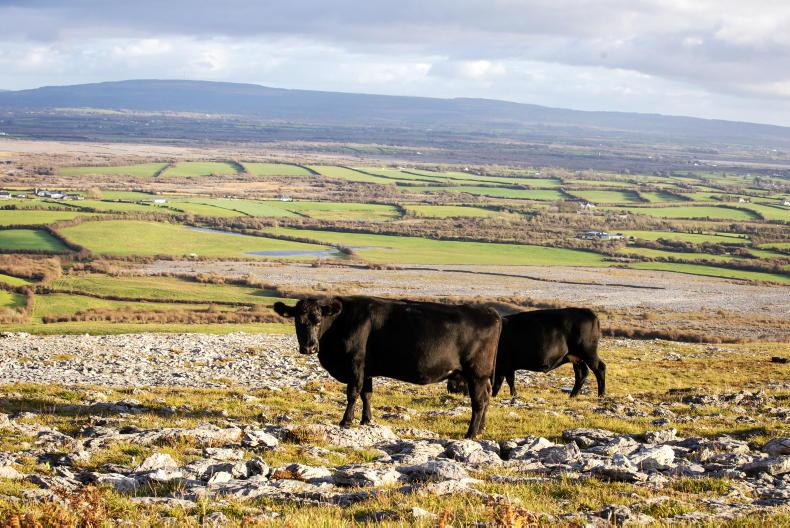
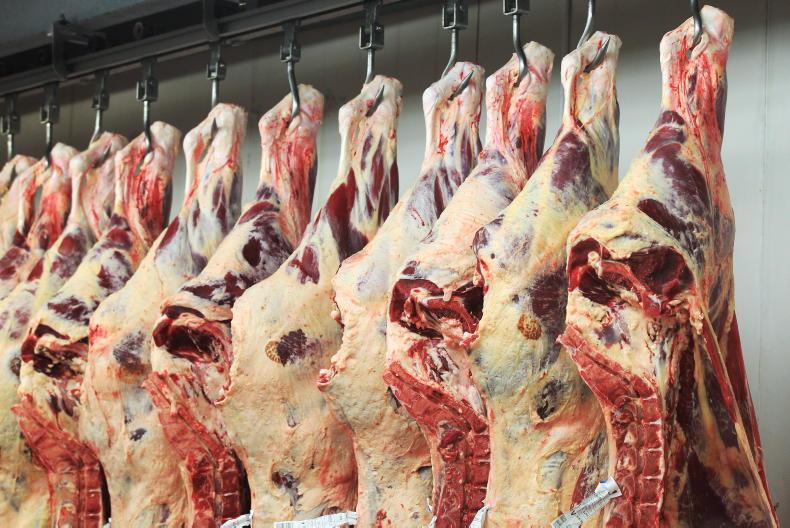
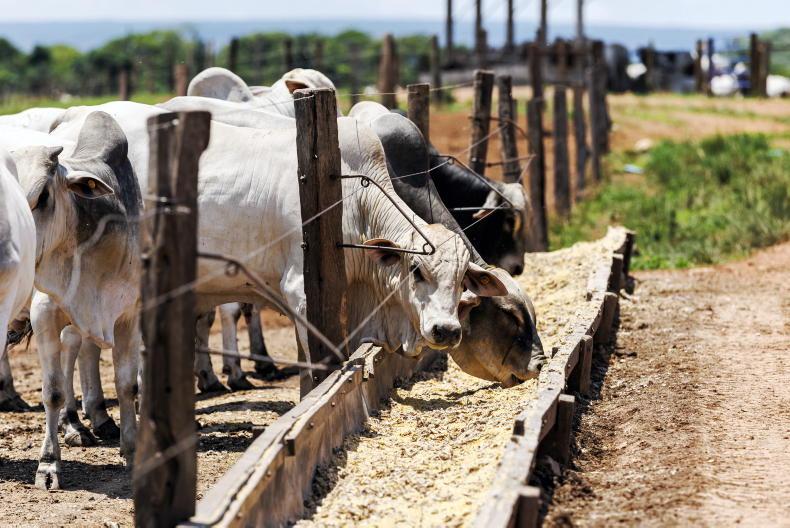
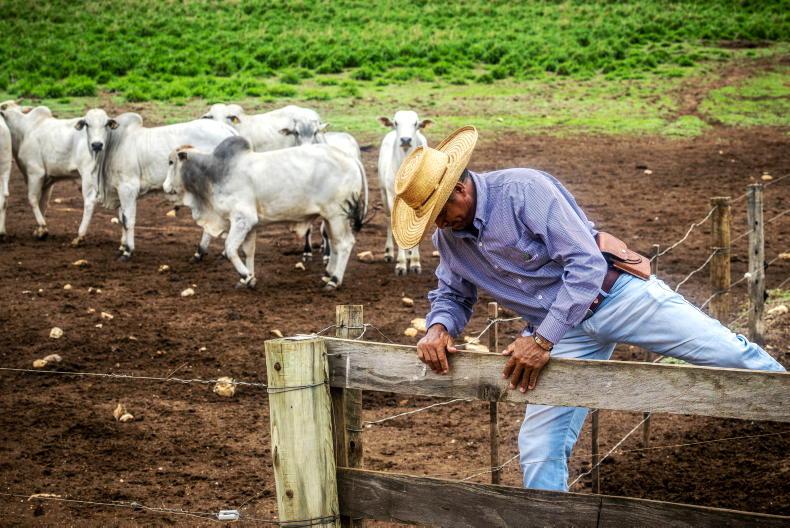
SHARING OPTIONS